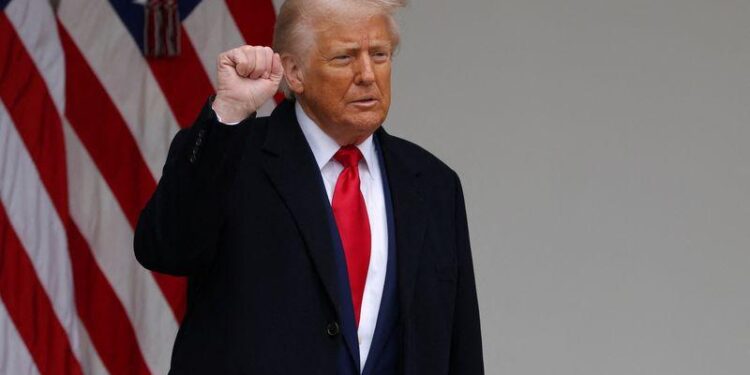Legal Challenge by Trump Administration Against Maine’s Transgender Athlete Policy
In a pivotal legal action, the Trump administration has launched a lawsuit against the state of Maine regarding its regulations that permit transgender athletes to compete in girls’ sports. This move has ignited considerable debate among supporters and detractors of the policy, raising critical questions about fairness and inclusivity in athletics. Advocates for these policies argue that they protect the rights of transgender individuals to engage in sports consistent with their gender identity, while opponents assert that such inclusion compromises the integrity of women’s competitions.
Key elements emerging from this situation include:
- Legal Basis: The lawsuit claims that Maine’s approach contravenes federal laws under Title IX, which prohibits discrimination based on sex in educational programs and activities.
- Athlete Impact: Proponents highlight the necessity of creating an inclusive environment for all students, whereas critics voice concerns about potential advantages held by transgender athletes.
- Public Sentiment: This initiative has mobilized public opinion significantly, with various advocacy groups rallying support for both sides of this contentious issue.
The Broader Implications for Fairness and Inclusion in Girls’ Sports
The recent legal dispute initiated by the Trump administration against Maine concerning transgender athlete participation has intensified national discussions around fairness and inclusion. Critics maintain that allowing transgender women to compete in female sports undermines efforts to create a level playing field intended to provide equitable opportunities for all competitors. Conversely, advocates stress the importance of acknowledging gender identity and affirming the rights of transgender individuals to participate in sports aligned with their identities. This complex dialogue highlights an urgent need for clear policies that balance both competitive equity and participation rights.
Navigating these intricate issues requires collaboration among stakeholders—including policymakers, athletic organizations, and educational institutions—to foster constructive conversations. Important considerations should encompass:
- Create Inclusive Policies: Develop regulations that safeguard both transgender athletes’ rights while maintaining women’s sports integrity.
- Pursue Research Initiatives: Collect empirical evidence regarding how transgender participation affects competitive dynamics.
- Cultivate Community Dialogue: Encourage discussions involving athletes, parents, coaches, and advocacy groups to promote mutual understanding.
| Main Aspect | Acknowledgment For Inclusion | Acknowledgment Against Inclusion |
|---|---|---|
| Equity | Ensures everyone can compete according to their gender identity . | <Concerns over possible competitive advantages some trans athletes may have . |
| Rights | Supports trans individuals ‘ right s to participate . | Risk s eroding traditional definitions within women ‘s competition . |
| Community | Promotes inclusivity within sporting environments . | Could lead t o divisions among competitors . |
Sensible Approaches for States Addressing Transgender Participation in Sports
The challenge states face regarding including transgender athletes necessitates strategies aimed at achieving a balanced approach respecting all participants’ rights. Engaging local stakeholders is vital; states should organize forums involving athletes , parents , coaches ,and advocacy groups to gather diverse viewpoints. Such dialogues can inform policies designed not only with inclusivity but also sensitivity towards fair competition concerns.
Additionally,< strong legal expertise is crucial as navigating federal laws like Title IX requires careful consideration to avoid litigation while upholding trans individuals’ rights.< / p >
< p />Moreover,< strong clear eligibility criteria should be established based on scientific insights into performance factors such as hormone levels , transition duration ,and age providing clarity on participation guidelines.< br />
Furthermore,< strong oversight committees tasked with regularly reviewing participation policies will enhance transparency adapting them as societal understandings evolve around gender identity< / p >
Final Thoughts on Legal Developments Surrounding Transgender Athletes’
The lawsuit filed by Trump’s administration against Maine over its policy permitting inclusion of transgenders into girls’ athletics highlights ongoing national debates surrounding equality within sport contexts.< br />
As states continue grappling between ensuring fair competition alongside protecting individual identities,the ramifications from this case are likely far-reaching beyond just one state’s borders.< br />
Both advocates anticipate outcomes could influence local legislation while potentially setting significant precedents applicable nationwide moving forward< br />
As developments unfold,it remains essential monitoring how lawmakers educators communities adapt amidst evolving landscapes concerning sport inclusiveness.










